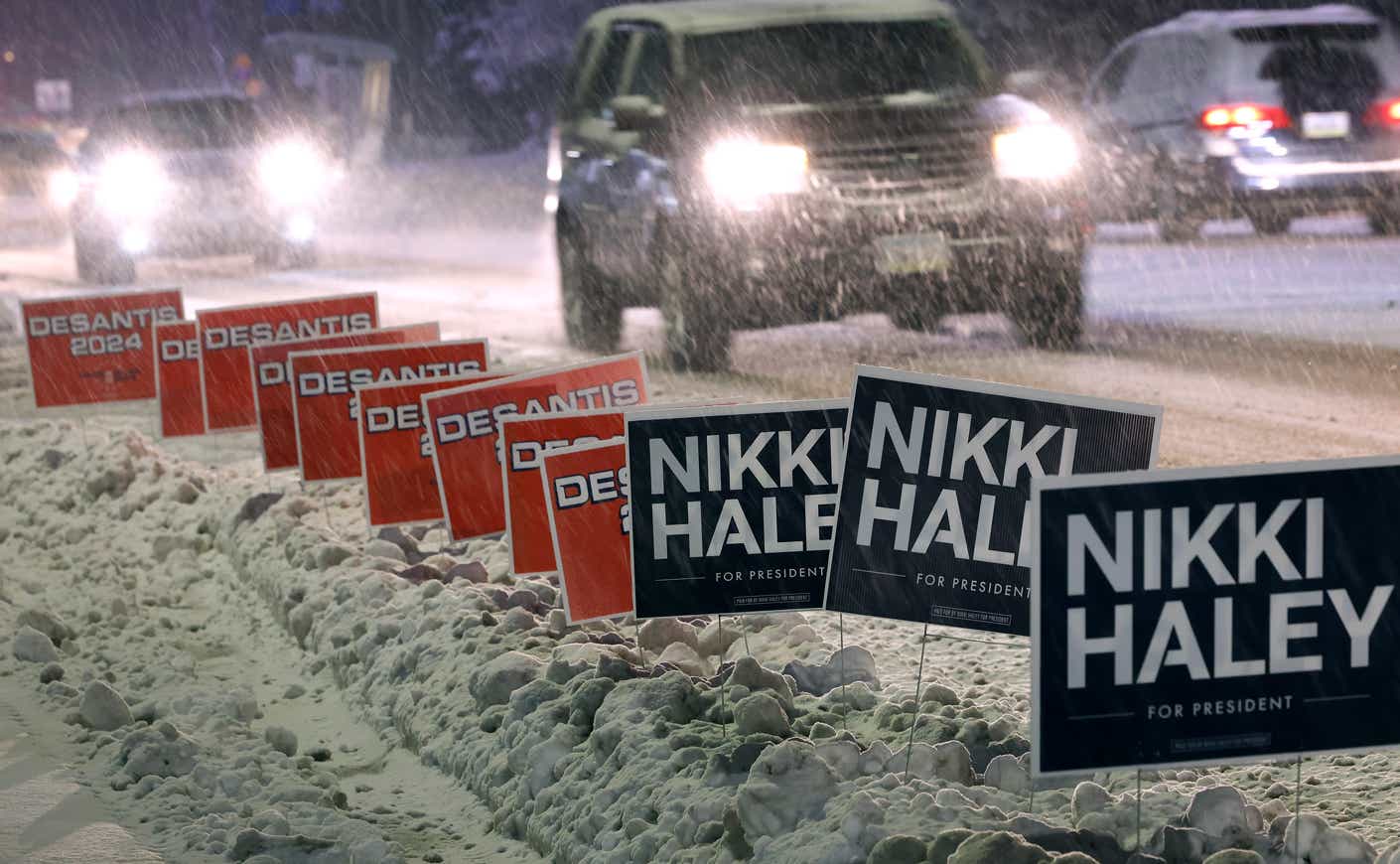The race for the White House begins this week in Iowa. The state’s caucuses, which have served as the starting line for presidential candidates since the 1970s, are being held Monday. Republicans in the Hawkeye State will brave snow and subzero temperatures to meet and choose who they'd like to see as the 2024 GOP nominee.
According to the Iowa Poll, a closely watched survey conducted by NBC News, the Des Moines Register, and Mediacom, Donald Trump has a large lead. The former president commands 48 percent of the vote, followed by Nikki Haley with 20 percent, Ron DeSantis with 16 percent, and Vivek Ramaswamy with 8 percent.
Before voting begins, brush up on how the caucuses actually work (and how they differ from primaries), when the Democrats will get the chance to pick their nominee, and more.
How do the Iowa caucuses work?
"Caucuses" and "primaries" are sometimes used interchangeably, but they’re quite different. In primaries, voters go to the polls and pick their candidates in private — or mail in their ballots.
Caucuses are like party meetings. People from the community gather at local schools or churches and listen to representatives from each campaign make their case for their candidates. In Republican caucuses, people then cast secret ballots.
To be counted, you must attend in person, which is why the method has been criticized for excluding voters who may have a disability or might not be able to take time off of work. Traditionally, fewer than 25 percent of Iowans participate.
Are the Democrats holding caucuses?
Yes, techincally. The party is holding meetings but only to conduct administrative business — not to choose a 2024 nominee.
The Democrats used to follow a much more complicated process. Voters gathered into physical groups — say Obama voters would congregate in one corner and Clinton voters in another. Candidates with less than 15 percent of the vote would be eliminated, and their supporters would be forced to choose someone else. Liberals moved away from this process after their chaotic 2020 caucus. Last time around, the party used a new app to report the results, which malfunctioned, resulting in delays and a partial recount.
This year, Iowa Democrats will pick their nominee by mailing in a “preference card,” from Jan. 12 until March 5.
When are the Iowa caucuses?
The GOP will have 1,657 caucus sites this year, with meetings scheduled to begin on Jan. 15 at 7 p.m.
According to the New York Times, the results should be released within a few hours.
Why are the Iowa caucuses so important?
Every four years, presidential candidates spend a staggering amount of time and money in Iowa — a state that, for Republicans, has just 40 delegates up for grabs. (Republicans need 1,215 delegates to win the nomination.)
So why invest so much in a state that's so small? Experts say it’s all about building momentum. Winning Iowa can place long-shot candidates in the spotlight, earning them media attention and a boost in campaign donations. Barack Obama’s surprise victory there in 2008 is the perfect example of what an early win can do for a contender, NPR reports.









